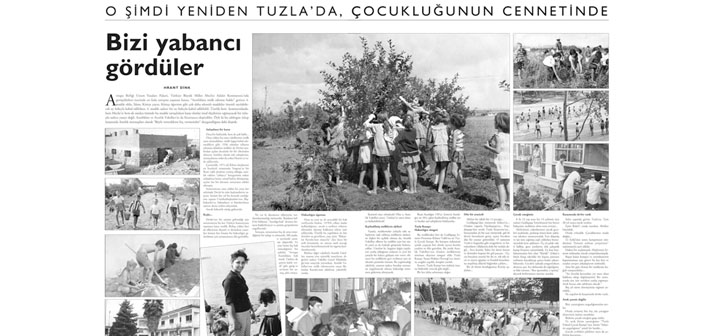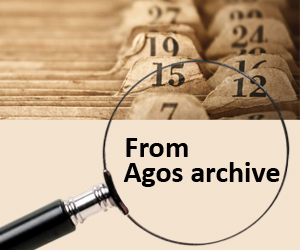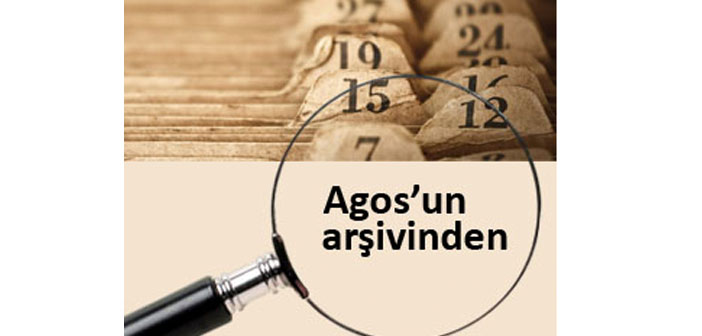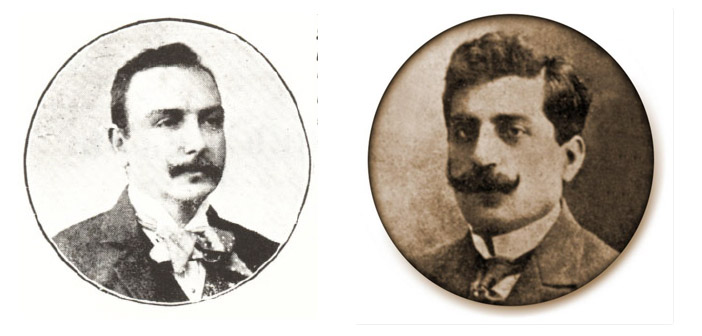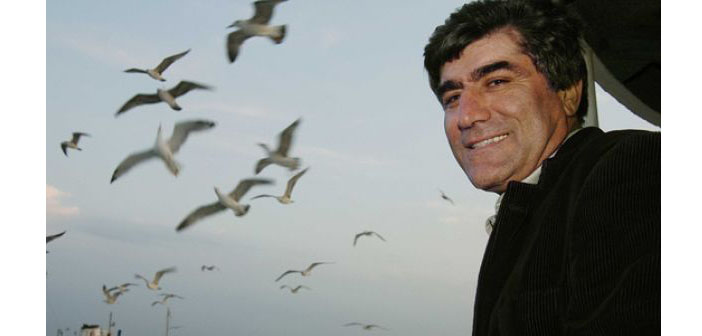We continue sharing our archive with an article by Hrant Dink, in which he tells about his memories of Kamp Armen. In this article, which was published again in the first issue after Dink’s assassination, he reveals the desperate condition of the camp.
From the archive of Agos: Hrant Dink- they considered us as strangers
He returned to Tuzla, the heaven of his childhood
In the process of discussing the harmonization package of EU in the Justice Commission of the Grand National Assemble of Turkey, the most debated issue was the item 4, which gives minorities the right to possess properties. Whereas the items concerning more troubled issues like death penalty, publishing in Kurdish and education in Kurdish were passed by a remarkable majority of votes, item 4 was passed only by majority by one vote. Moreover, while this item was being discussed in the commission, in the parliament and in media, dissenting people criticized not only the law, but also minorities and minority foundations with such an intolerable tone that we, the minorities, became emotional because of this hostile attitude and said, “If this is the way to give us this right, we would be better off without it.”
An incomprehensible decision
However, we were right; we had a good right indeed…
Our foundations couldn’t have purchased any property or received a property as donation for 30 years. Moreover, the properties that they purchased after 1936 were being seized by the state through lawsuits and they were returning those properties to the former owners, inheritors or to the Treasury.
We were helpless. Supreme Court made an incomprehensible ruling in 1974, during the most intense times of Cyprus issue, which considered minority foundations as “foreigner” and this ruling became a precedent case and began to influence all the rulings in similar cases. In last 30 years, we have been taking every legal action possible, but our reports concerning this issue were swept under the rug by presidents, prime ministers, ministers and bureaucrats. The injustice remained.
We wish…
Since the state hadn’t solved our problem, we decided to discuss this issue in public. In the last years, sensitive and democrat writers of our country have been writing about this issue whenever possible in order to overcome this injustice. Unfortunately, the insensitivity of the enforcing mentality remained. Some of the rulers were getting furious when someone mentioned the “right of minorities” and they were preventing any attempt for solving this issue.
In the end, our problem was solved as a part of the harmonization, which wasn’t the way we wished to solve this problem. And it brought a strange and unpleasant result that we hadn’t deserved at all, people said: “Europe demanded some rights for the minorities and Turkey couldn’t have found a way out and gave them away.”
Insurance for injustice
However, this right was neither new, nor exclusive. It was a right that we had until ‘70s and only thing they had done was to return this right that they had taken away from us. In fact, they were going round the houses to give this right. An annotation was put to this law: “With the approval of the Cabinet.” In this way, an inequality is created between minority foundations and other foundations; whereas the approval of the General Directorate for Foundations is enough for other foundations to have properties, the minority foundations have to get the approval of the Cabinet.
They have to have a great control over the minorities! Someday minority foundations might get wild and try to purchase the whole Turkey!
Camp in Tuzla: the symbol of the injustice
Children’s camp in Tuzla, which belongs to Gedikpaşa Armenian Protestant Church Foundation, is one of the properties that were seized by the state. I wrote the story of this camp as a person who lived there once. In some sense, this camp is the symbol of the process of seizing the properties of the minority foundations. Human Rights Association held exhibitions and published books about it. Believe me; the story of this camp never gets old.
So, it is worth telling it again.
One morning, they took 13 children; I was among them. We walked to Sirkeci from Gedikpaşa… There, we took the ferry to Haydarpaşa and then we took the train to Tuzla… From Tuzla train station, we walked for 1 hour and arrived at an immense plain land on the seaside. At that time, Tuzla wasn’t full of villas of rich people and bureaucrats… A virgin seaside with fine sand and a small lake that broke from the sea… Couple of houses on the immense land, some fig and olive trees here and there and brambles along the dykes…
And the Red Crescent tents that we had built…
For us, 13 frail children, the weary summers spent in the garden of Gedikpaşa Orphanage had ended…
We were remembering our families and relatives only when we were watching the far-away, flashing city lights. City lights were looking like fallen stars that piled up on top of each other.
For 3 years, we woke up at dawn and worked until the midnight and finished the building. Even the shortest ones managed to carry the cement bags to the roof by themselves. We were wetting ourselves during sleep, because we were always too tired.
I was 8, when I went to the camp. I worked there for 20 years. I met my wife Rakel there. We grew up together. We married there. Our children born there… After the coup on September 12, the director of the camp was arrested with the accusation of “raising Armenian militants.” It was an unfair accusation. None of us was raised as an Armenian militant. I and some friends who were raised there took over the management, because we didn’t want the camp and orphanage to be shut down.
However, someday, a court order was slipped.
“You, the minority foundations, don’t have the right to purchase properties. It is our mistake to allow you to have properties once. This place will be returned to the former owner.”
We lost, despite we struggled for 5 years… That's just the way it is, if the state is against you.
They banished us from the civilization that we had built.
They appropriated the efforts of 1500 children who were raised there. They seized the labor of children. If they would have plans to build another orphanage for poor children there, I would give my blessing to them. But in this way, there is no blessing from me.
The camp we created, our Atlantis, is in ruins now…
When the patters of the tiny feet went away, the well got dry… The building stoops… The soil is barren… The trees are resentful…
And I feel as angry as a swallow whose meticulously built nest had fallen into pieces with a single blow.
Though, I am desperate…
This article was published in Agos on January 26, 2007.


